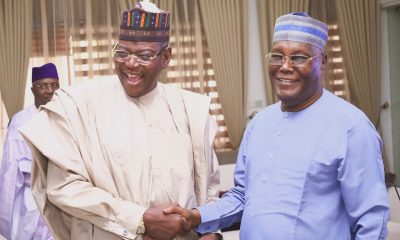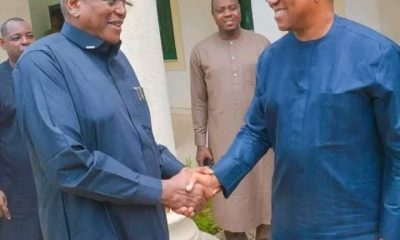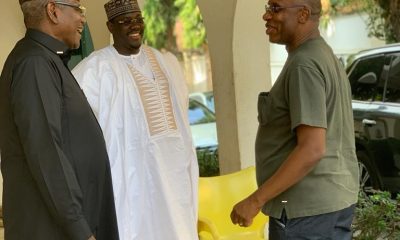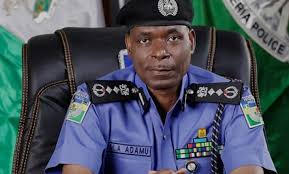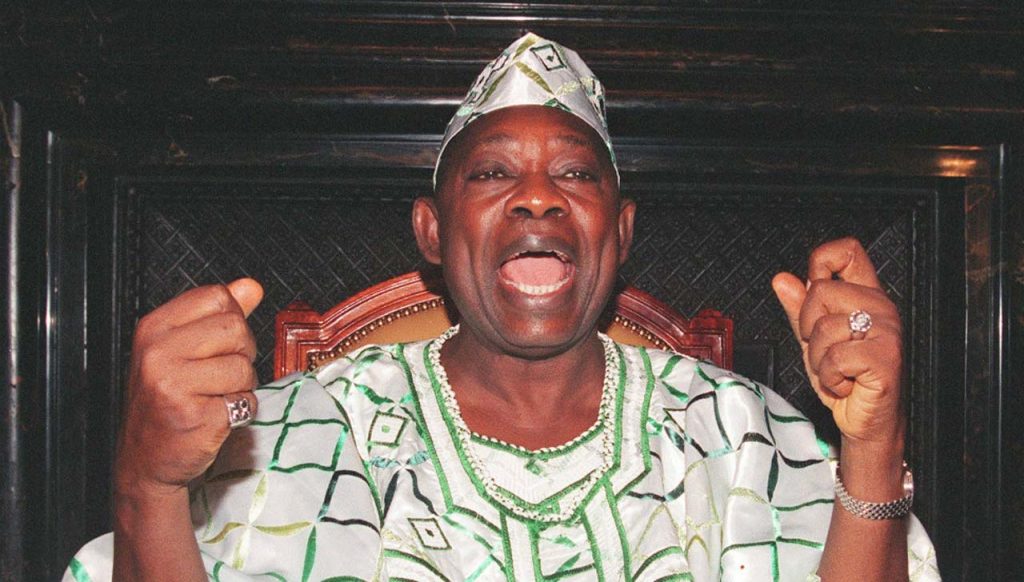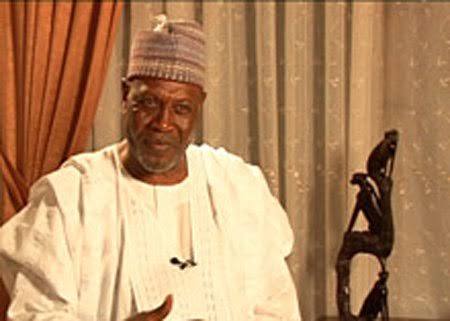Featured
MKO Abiola was never a choice of Southwest — Sule Lamido
Published
7 years agoon
By
Olu Emmanuel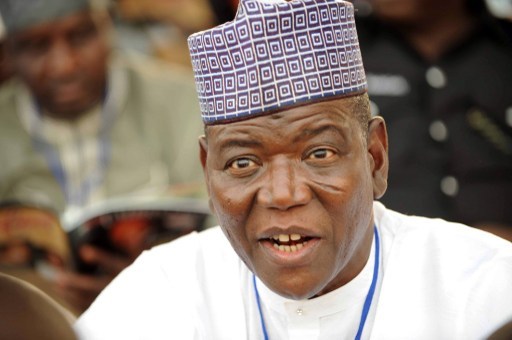
A former governor of Jigawa state, Sule Lamido has finally opened up on the issues that resulted to the annulment of June 12 1993 presidential election and the key players.
In an interview, Lamido, who was also a former foreign Affairs Minister, disclosed that later MKO Abiola, the presumed winner of the June 12 1993 presidentila election was never the choice of the Yorubas because of the role he played in NPN against Chief Obafemi Awolowo of the UPN.
According to him, the Yoruba at the initial stage never supported his candidature because of the way he attacked Awolowo, using his newspaper to demonize the late sage, particularly by exposing his ownership of the Dideolu Estate.
“Most of the Yoruba activists were nowhere near June 12 on June 11 because they adopted the siddon-look (wait and see) attitude; they were never part of it. Meanwhile, there was also a war of succession as to who was going to take over from Awolowo within the Awolowo dynasty, they were fighting.
“By 1983 Bola Ige lost out, Jakande was emerging as Baba Kekere gradually; the Yoruba hawks were also fighting Jakande in the process. By the time June 12 was annulled, the Yoruba hawks that were never part of June 12, who were not there on June 11, saw this as their own means to fight back.
“They came and got June 12 appropriated, they had no hand whatsoever in June 12, they were not part of it; they didn’t even believe in it, they only came on board on June 13. On June 11, they were nowhere, ask Kola (Abiola) ask him, he knows it.”
“When Babangida decided to promote democracy, he made a decree that anybody who had taken part in politics from 1960 to 1983 December was banned politically by Decree 25. So, it means Nigeria had no political history, simple!
“I raised the alarm, saying there is a lacuna in that transition, especially on the issue of Decree 25 and the issue of knowing whom he (Babangida) was not going to hand over to. In spite of that we formed political parties; our own group was called the PSP which was made up of progressives with people like (Ebenezer) Babatope, Abraham Adesanya, Olu Falae, Lateef Jakande, Ayo Opadokun, the late Solomon Lar and the late Abubakar Rimi. Shehu Yar’Adua formed his own group called PF, all the right-wing elements formed the NCC.
“Any person whom the government didn’t like in terms of political views, they disqualify them, I was disqualified as governorship candidate, Atiku was disqualified, Ezekiel was disqualified, Bala Takaya was disqualified. Many of us who were seen as having radical views were disqualified.
“The parties belonged to the government; they decided who got what and when. So in essence, annulment was part of the process right from the very beginning. But no one raised an eyebrow.
We came to a convention to elect our flag bearers, in SDP; it was Olu Falae and Shehu Yar’Adua who were running for president.
“In SDP, there were two strong tendencies, the PSP and the PF group and the colours in the party could not blend because the progressives were on one side, all other groups were on the other side. So the battle was between Olu Falae who was our own (progressives) and Yar’Adua who was of the PF group. In the NRC, it was the same battle they were fighting between Adamu Ciroma and Umaru Shinkafi.
ALSO READ: Ministerial Appointment: Buhari’s nominee already in scandal, sparks protest
“When the conventions were annulled, suddenly, from nowhere, Abiola emerged. Again, I mean no offence, when Abiola was in the NPN, he got his fingers burnt there, he was bruised and said he would never participate in politics.
“When the convention of the NRC and the SDP were annulled, there were no single political figures standing to run for the office of the President of Nigeria. Yar’Adua, Adamu Ciroma, Shinkafi, were also banned, so it meant there was no standing character, there was no standing influence of somebody who could qualify to be.
“From nowhere, Abiola and Bashir Tofa appeared. By the time Abiola joined the SDP, a council chairman in his ward or local government, the governor of his state, members of the Houses of Assembly, members of the House of Representatives and Senators had all been elected.
“He had no idea how they were produced. He didn’t know because he came at a time they had all been elected, so in terms of political relationship they didn’t know him talk more of his contribution to the party, same thing with Tofa in NRC.
“When these two joined the race after the annulment of the first two conventions, the confession of the then President Ibrahim Babangida that he knows who he was not going to hand over power to, has become true, since his friends were now emerging, because both Tofa and Abiola were his personal friends. It meant he was goading us towards his own destination.
“Kingibe saw a chance; he didn’t even rise to defend Yar’Adua (after Babangida annulled the primaries), as chairman of the party he connived and endorsed the annulment of the convention of his own party, he endorsed the disqualification of Falae and Yar’Adua and so he saw an opportunity to enter the race. As former Chairman of the party, he entered the race with Abiola.
You may like
Trending

 Health5 days ago
Health5 days agoDeclassified CIA memo explored concealing mind-control drugs in vaccines

 Entertainment7 days ago
Entertainment7 days agoSimi addresses resurfaced 2012 tweets amid online backlash

 Crime5 days ago
Crime5 days agoSenior police officers faces retirement after Disu’s appointment as acting IGP

 Education7 days ago
Education7 days agoPeter Obi urges JAMB to address registration challenges ahead of exams

 Health7 days ago
Health7 days agoNAFDAC issues alert on suspected revalidated SMA Gold infant formula

 Comments and Issues6 days ago
Comments and Issues6 days ago20 Critical Fixes to Save Nigeria’s Democracy from Electoral Fraud

 Football6 days ago
Football6 days agoMartínez ruled out of Everton clash with calf injury

 Latest6 days ago
Latest6 days agoICPC yet to respond to El-Rufai’s bail request as arraignment date looms


